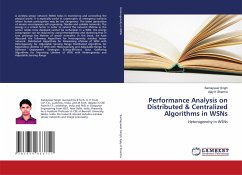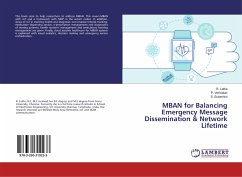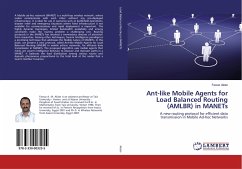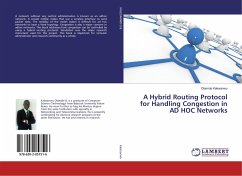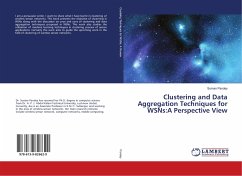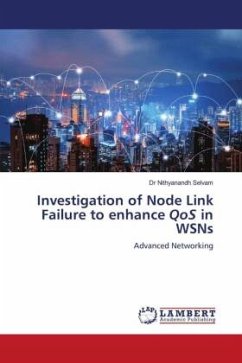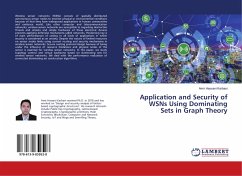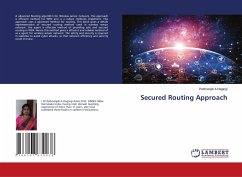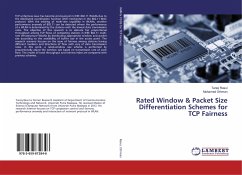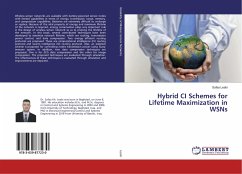
Hybrid CI Schemes for Lifetime Maximization in WSNs
Versandkostenfrei!
Versandfertig in 6-10 Tagen
41,99 €
inkl. MwSt.

PAYBACK Punkte
21 °P sammeln!
Wireless sensor networks are available with battery-powered sensor nodes with limited capabilities in terms of energy, transmission range, memory, and computation capabilities. Batteries are extremely difficult to recharge or replace. Because of the vital property of energy and maximum lifetime of the network is required, energy conservation plays very important role in the design of wireless sensor network so as to prolong the lifetime of the network. In this book, several contributed techniques have been developed to maximize network lifetime, which are routing, transmission power control, a...
Wireless sensor networks are available with battery-powered sensor nodes with limited capabilities in terms of energy, transmission range, memory, and computation capabilities. Batteries are extremely difficult to recharge or replace. Because of the vital property of energy and maximum lifetime of the network is required, energy conservation plays very important role in the design of wireless sensor network so as to prolong the lifetime of the network. In this book, several contributed techniques have been developed to maximize network lifetime, which are routing, transmission power control, and data compression. Two energy efficient routing protocols are proposed. These are computational intelligence (CI) routing protocol and swarm intelligence (SI) routing protocol. Also, an adaptive scheme is proposed for controlling nodes transmission power using fuzzy-immune system. In addition, two data compression techniques are proposed. One is for ECG data compression and the other for image compression. The proposed techniques are evaluated through simulation. The effectiveness of these techniques is evaluated through simulation and improvements are depicted.




